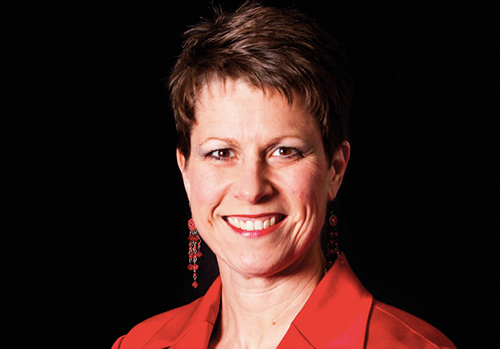Collaboration and evaluation reform

Close to 180 delegates gathered in Lisbon, Portugal for the 9th Conference on Open Access Scholarly Publishing (COASP) in September.
With myriad keynotes, panels, and networking opportunities spread out over two days, COASP once again brought together the open access publishing community for vital knowledge sharing and collaborative activity, and was the most highly attended conference OASPA has hosted yet.
The conference opened on Wednesday morning with a keynote from the European Commission’s Jean-Claude Burgelman, who discussed open access publishing policies and uptake across Europe. New and alternative models are emerging in open access publishing that weren’t possible 15 years ago, he argued, with the Commission working towards launching an open research European publishing platform.
‘Go together’
‘Open Research Europe’ will be a platform for peer reviewed articles and preprints; the publishing of these materials will be outsourced by the European Commission. Burgelman highlighted peer review as remaining fundamentally important in discussions of open science and the acceleration of change, and ended by arguing that the capacity of the community to enable open science to be realised can be best understood with an African proverb: ‘if you want to go fast, go alone. If you want to go far, go together.’
Following Burgelman’s keynote, six poster presenters gave lightning talks on the open access initiatives they’d been working on, which ranged from presentations on a library-publisher open access ‘Immigration Syllabus’; a discussion of Hypothes.is; questions of open access mathematics; networking and community building through LusOpenEdition; accreditation and support for journals in the Global South; and the highlighting of ‘HIRMEOS’, the High Integration of Research Monographs in the European Open Science infrastructure.
The day’s panels featured discussions on peer review and open access books and monographs publishing (with De Gruyter’s Anke Beck, UCL Press’s Lara Speicher, and Uppsala University Library’s Aina Svensson), the ethics and practicalities of open peer review in journal publishing (with the University of Amsterdam’s Jean-Sébastien Caux, Goettingen State and University Library’s Tony Ross-Hallauer, and F1000’s Liz Allen) and open infrastructure (with SPARC Europe’s Vanessa Proudman, eLife’s Paul Shannon, and OpenCitations’ David Shotton). Questions of open infrastructure in scholarly communication were examined in our afternoon keynote by Louise Page, of PLOS, who pointed to the importance of author-centric perspectives, the need for publishers to set new submission standards, and that new infrastructure takes time and investment for publishers to develop and adapt to.
Finishing off the day, five presenters gave short ‘show-and-tell’ talks. These ranged from discussions of efficient APC management (Chuck Hemenway, Copyright Clearance Center), the Landscape Study on Open Access Monographs (Frances Pinter, Knowledge Unlatched Research), a new results-free review model of peer review for addressing publication bias (Liz Bal, Life Sciences BioMed Central and SpringerOpen), open access content as innovation (Maria Levchenko, Europe PMC), and the sci.AI Platform (Roman Gurinovich, Xpansa).
‘Blinkered by bibliometrics’
Kicking off day two at COASP, Danny Kingsley (University of Cambridge) gave an illuminative talk on perversity in academic rewards. Pointing out the problem of the ‘only thing in academia counting’ being publishing in high impact journals, Kingsley described the consequential negative effect on scholarly communications being that reviewers are ‘blinkered by bibliometrics’ and researchers are less likely to share their data.

"A dramatic growth in the use of preprint servers in life sciences" – Danny Kingsley, Cambridge University Library
Early careers researchers struggle to access funding, she continued, which has resulted in an attrition crisis. But universities are starting to reward ‘openness’, with dramatic growth in the use of preprint servers in life sciences. The continuing problem, Kingsley argued, lies in administrators and senior academics dragging their feet; the current reward system has rewarded them, and so their capacity to seek change is lacking.
Continuing along the themes examined by Kingsley, the first panel of the morning featured Jonas Gurell (Swedish Research Council), Susan Veldsman (ASSaF), and Martin Quack (ETH Zürich), who discussed the vital role of research assessment and evaluation in progressing open access publishing and fighting against, as Quack described, ‘bureaucracy and robotcracy’ in academia. Good practice in research evaluation must involve trusted experts assessing work, and those working in research must reject the notion that a high rejection rate of a journal is a proxy for quality (Quack).
Jessica Polka (ASAPbio) used her late-morning keynote to discuss the emerging culture of preprinting in the life sciences since 2013, arguing that ‘hypercompetition’ is not suited to open science; instead, it is essential for researchers to share their work at the earliest opportunity. But in order to find these preprints, they currently have to be ‘searched out’; we have to find a way to raise awareness of preprints among researchers, as well as among open access advocates, and questions around the licensing of preprints urgently need to be addressed.
‘No more offsetting deals’
In our afternoon panel, Paul Peters (Hindawi), Mikael Laakso (Hanken School of Economics) and Colleen Campbell (Max Planck Digital Library) addressed the market for APCs and how to stimulate healthy competition. Peters explained that many large publishers have recently struck different offsetting deals, and that OA2020’s attention has been focussed on flipping subscription journals and, in turn, has entrenched the same small group of publishers. An anti-competitive culture, he continued, can be seen within the growth of hybrid open access, and perpetuated by a lack of transparency, non-disclosure agreements and a lack of compliance and reporting.
For Peters, possible solutions to progress open access include a push for pure open access rather than hybrid titles, and no more offsetting deals. Following Peters’ talk, Laakso implored the audience to take a closer look at how thousands of journals have managed the conversion transition to become open access, giving us an optimistic reading of the way the landscape has changed and shifted toward open access over the last five years. Campbell, speaking last, continued by describing what librarians can do to help this transition to open access: transparency to drive competition and innovation, and the use of offset deals as transitional models to pave the way to full open access business models.

"The challenge with the hybrids is that they are continually popular with researchers" – Robert Kiley, Wellcome Trust
Our last speaker at the conference was Robert Kiley, of the Wellcome Trust, whose keynote described how their Open Research platform aimed primarily to push research out faster; it is now the fourth most used platform by Wellcome Trust funded researchers behind PLOS One and Nature’s Scientific Reports. Kiley argued that the challenge with hybrids is that they are continually popular with researchers. He called for the open access publishing community to move beyond journal names as a proxy for quality, and for publishers to provide high-quality metadata, especially around funding.
Closing the conference, Liz Ferguson (Wiley) noted that collaboration, diversity, common infrastructure, efficiency, and transformation had all been common themes at COASP 2017. The huge changes we are seeing within the scholarly publishing landscape – and want to see more of – fundamentally depend on changes within the evaluation system, she concluded.
The full set of recordings and slides from the conference will be available via our new conference microsite soon.






